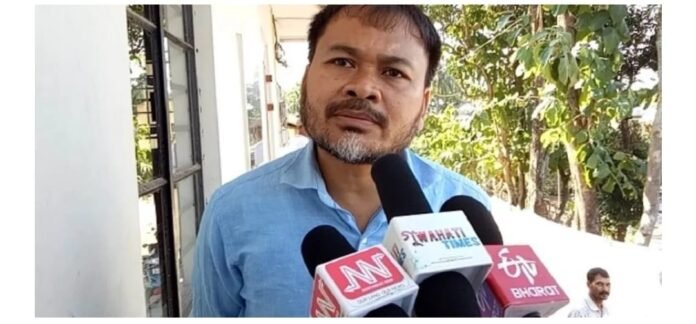Introduction:
In a recent statement, Sivasagar MLA and Raijor Dal leader Akhil Gogoi has accused the Bharatiya Janata Party (BJP) of orchestrating the ‘three Gogoi’ issue in Guwahati. Gogoi claims that the BJP intentionally created this controversy as a means to manipulate public sentiment and sow discord among the people. The ‘three Gogoi’ issue refers to the presence of three prominent politicians with the surname “Gogoi” in Guwahati politics, namely Tarun Gogoi (former Chief Minister), Dip Gogoi (Congress candidate), and Akhil Gogoi himself.
Background:
Akhil Gogoi’s allegations come at a time when the political atmosphere in Assam is charged with preparations for the upcoming elections. The BJP has been making significant efforts to consolidate its position in the state, while other parties are vying for their share of the political landscape. In this context, the ‘three Gogoi’ issue has gained attention and sparked debates among the public.
Accusations Against BJP:
According to Akhil Gogoi, the BJP deliberately created the ‘three Gogoi’ issue with the aim of confusing voters and diverting attention from more critical issues. Gogoi claims that this strategy was employed to fragment the opposition’s vote bank and consolidate the BJP’s chances of electoral success. He suggests that such tactics are a manifestation of the BJP’s divisive politics, designed to exploit regional and identity-based sentiments for electoral gain.
Manipulating Public Sentiment:
Akhil Gogoi argues that the BJP’s creation of the ‘three Gogoi’ issue is an attempt to capitalize on the legacy of the late Tarun Gogoi, who served as Chief Minister of Assam for three consecutive terms. By associating the Congress candidate Dip Gogoi and himself with the revered Tarun Gogoi, the BJP aims to confuse the electorate and weaken their support for the opposition parties. Gogoi claims that this political ploy is intended to secure the BJP’s dominance by exploiting the emotional connection that many people had with Tarun Gogoi.
Call for Unity and Awareness:
In response to the BJP’s alleged tactics, Akhil Gogoi has called for unity among the opposition parties and urged the public to remain vigilant against such manipulative strategies. He stresses the importance of voters being well-informed and aware of the larger issues at stake in the upcoming elections, rather than getting distracted by manufactured controversies.
Conclusion:
Akhil Gogoi’s accusations against the BJP regarding the ‘three Gogoi’ issue in Guwahati highlight the charged political climate in Assam. As the electoral landscape evolves, it is crucial for voters to critically analyze the tactics employed by political parties and focus on the substantive issues that will shape the future of the state. The public’s awareness and active participation in the democratic process will be essential in ensuring a fair and transparent electoral outcome.


